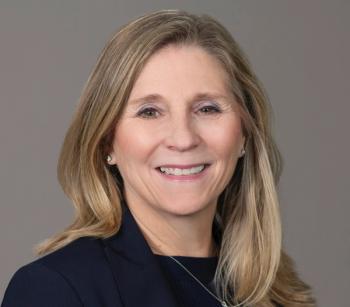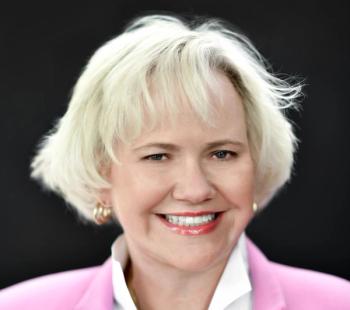
With House approving Medicaid cuts, hospitals turn to Senate for relief
Health systems have said the House package would leave millions without coverage and could lead to hospital closures. They’re hoping to persuade the Senate to avert the cuts.
Hospital leaders had hoped to convince the House of Representatives to prevent cuts to Medicaid that could leave millions of Americans without coverage.
But the House narrowly passed the spending package, including the Medicaid cuts. The measure is known as the One Big Beautiful Bill, but as far as hospitals and healthcare leaders are concerned, beauty is in the eye of the beholder.
Now, hospital leaders must turn to the Senate to avert the cuts to Medicaid. The House passed the bill by just one vote, and some Republican senators have made it clear that they don’t want to see cuts to Medicaid.
Hospital leaders have argued that the stakes are high for all Americans, and not just those relying on Medicaid. In addition to
Hospitals also faulted the package because it doesn’t extend additional funding to support the Affordable Care Act, and millions more could lose coverage.
“There is still time to take heed and turn this ship,” Kahn said in a
Sister Mary Haddad, president and CEO of the Catholic Health Association of the United States, said the group opposes provisions that would limit the tax authority of states to support Medicaid programs and requirements for some adults to have a job to get benefits.
“We urge the Senate to protect and strengthen the programs that uphold the dignity, health, and well-being of all, especially those most in need,” Haddad said in a statement Thursday.
Rick Pollack, president and CEO of the American Hospital Association, said that the fallout would be widespread. “The sheer magnitude of the level of reductions to the Medicaid program alone will impact all patients, not just Medicaid beneficiaries, in every community across the nation,” Pollack said in a statement.
“Hospitals — especially in rural and underserved areas — will be forced to make difficult decisions about whether they will have to reduce services, reduce staff and potentially consider closing their doors,” Pollack said. “Other impacts could include longer waiting times to receive care, more crowded emergency departments, and hospitals not being able to invest in technology and innovations for clinical care.”
Where the Senate stands
While Trump has urged the Senate to pass the package, the Medicaid provisions could be among the most problematic for senators. And Trump has said he doesn’t want significant cuts to Medicaid.
Most Democratic senators are likely to vote against the package’s cuts to Medicaid, but some Republicans have said they don’t support changes that would leave more Americans without coverage.
U.S. Sen. Josh Hawley, a Missouri Republican, has spoken out against GOP efforts to cut Medicaid.
In a New York Times
In response to reports that Trump is telling the GOP to leave Medicaid alone, Hawley
In a
Sen. Jerry Moran, a Kansas Republican,
“I want to make certain that my colleagues know, in my view, the value of making certain we do no harm to those in desperate need of health care in Kansas and across the country,” Moran said.
Sen. Susan Collins, a Maine Republican, told
Medicaid and Medicare retain strong public support and Americans have indicated they oppose substantial cuts. More than three quarters of Americans say they oppose significant cuts to Medicaid and Medicare, according to
What’s in the package
The House legislation caps the tax states impose on medical providers, which could prompt some states to raise their own taxes or choose to cover fewer people. The change would reduce support by more than $700 billion over 10 years.
Lawmakers say the changes are designed to curb abuse. Pollack said the ability of states to tax providers is “essential to offset decades of chronic underpayments of the cost of care provided to Medicaid patients.”
The package would require “able-bodied adults without dependents” to work at least 80 hours per month, or engage in community service or educational programs for 80 hours per month, or some combination.
The Medicare Rights Center says the work requirements “in reality function as cuts to Medicaid by another name.”
“Many Medicaid beneficiaries who will be kicked off of Medicaid due to the red tape of work requirements are people with disabilities, older adults, and their caregivers,” the center said in a statement Thursday.
States would also be compelled to impose “cost sharing” requirements on recipients with incomes over 100% of the federal poverty level; the co-pay would be capped at 5% of the individual’s income.
In addition, the budget package doesn’t extend tax credits that support the Affordable Care Act. Enhanced subsidies put in place by President Biden are slated to expire at the end of 2025.
“We are also deeply concerned by the bill’s failure to extend the Affordable Care Act’s enhanced premium tax credits,” Haddad said in a statement. “Without action, five million Americans—including nearly two million living with chronic conditions—could lose their coverage, and millions more would face skyrocketing premiums and unaffordable care.”
The Congressional Budget Office, a nonpartisan research arm, estimates that the House GOP plans would result in
The Medicare Rights Center notes that
Haddad also criticized changes to the Supplemental Nutrition Assistance Program, which would extend the age of work requirements from 54 to 64. She said the provision “would further jeopardize food security for families already struggling to make ends meet, compounding the health and economic burdens on low-income communities.”
Bruce Siegel, president and CEO of America’s Essential Hospitals, said the House package would hurt both patients and hospitals.
“The cuts would threaten the health and well-being of millions of Americans and harm the essential hospitals that serve as community lifelines,” Siegel said. “We look forward to continuing our work with lawmakers to find real solutions to sustain and strengthen Medicaid.”






















































































